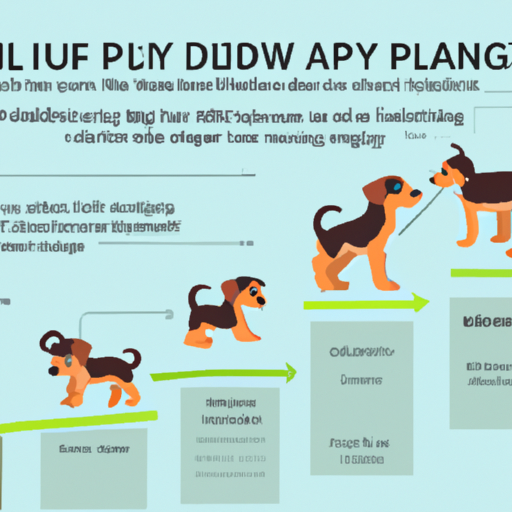Understanding the Growth Stages of Dogs
It’s essential for you, as a caregiver, to understand that each dog breed matures at a different rate. Some smaller breeds might reach maturity as early as nine months, while larger breeds might take up to two years or more. Your dog’s breed will significantly influence when he will stop growing.
Consider the following:
- Small breeds typically stop growing by the time they are 6 to 8 months old.
- Medium-sized breeds generally reach their full size at around 12 months.
- Large and giant breeds can continue growing until they are between 18 months and 2 years old.
Keep in mind, individual dogs within the same breed can mature at different rates due to genetics, nutrition, and environmental factors.
Nutritional Needs During Growth
As your dog grows, his nutritional requirements will change. Puppies need a diet rich in protein and fat to support their rapid growth and high energy levels. As they mature, their dietary needs will shift. Overfeeding puppies, especially large breed puppies, can lead to obesity and other health issues.
Here’s a simple guideline to follow:
- Puppies: High-quality puppy food until they reach 80% of their expected adult size.
- Adult Dogs: Gradually transition to adult dog food after they have reached their expected size.
Physical Changes as Dogs Grow
As your dog matures, you’ll notice changes in their size, weight, and behavior. Puppies tend to have softer, fluffier coats, which they will shed as they grow into their adult fur. Their teeth will also change, with puppy teeth being replaced by adult teeth at around four to six months of age.
Emotional and Behavioral Changes
Just like humans, dogs go through a teenage phase, too. This is a crucial period in your dog’s life where they will test boundaries and exhibit new behaviors, some of which may be challenging for you as a caregiver. Patience, consistent training, and positive reinforcement will be your best tools during this time.
The Importance of Regular Vet Check-ups
Regular vet visits are essential to ensure your dog is growing and maturing at a healthy rate. Your vet can provide personalized advice based on your dog’s breed, size, and individual health needs. Regular vaccinations, deworming, and flea and tick prevention are all part of a healthy puppy’s life.
Frequently Asked Questions
Q: When is a dog considered an adult?
A: Smaller breeds can be considered adults around one year of age; larger breeds may not be adults until they are closer to two years old.
Q: Can a dog’s behavior change as they grow?
A: Yes, dogs can exhibit new behaviors as they mature. Patience, consistent training, and positive reinforcement are crucial during this period.
Q: How often should I take my dog to the vet?
A: Puppies need to visit the vet every few weeks until they are about four months old. After that, bi-annual check-ups are recommended.
Q: What should I feed my growing dog?
A: Puppies need high-quality puppy food until they reach 80% of their expected adult size. After that, you can gradually transition them to adult dog food.
Q: When do dogs stop growing?
A: The age at which dogs stop growing is highly dependent on their breed and size. Small breeds might stop growing by 6 to 8 months, while larger breeds can continue growing until they are 18 months to 2 years old.



